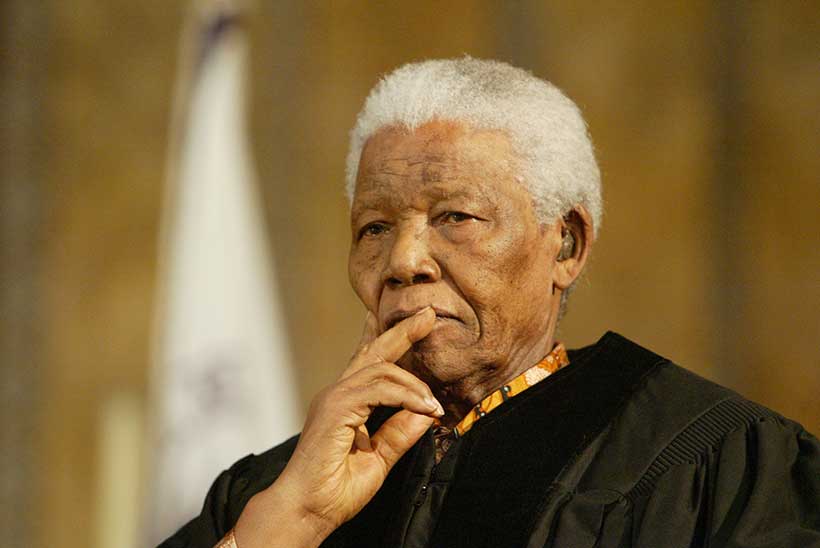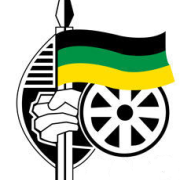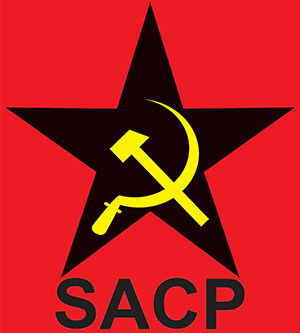KW: Mandela goes into prison in 1962, gets out in 1990. When you were working and researching in South Africa, how did people speak of his imprisonment? Or not?
SR: When I was doing my dissertation research in the 1980s, a history of Mthatha, which was the largest town in Transkei, people didn’t talk about politics. I was trying to do some oral historical research and people simply wouldn’t talk. It was too dangerous.
I ended up using a lot of archival material, and of course, that’s one of the reasons why a lot of my work is really based through the 1960s. It’s because of the 30-year rule, sometimes a 50-year rule, in South Africa. The archives are not secret, but they’re not open. In general, you can’t use archives that are within this sequestered range.
But, post-1990, there was a shift. I was in South Africa for six months in 1990, in the latter half of the year: Mandela had gotten out of prison that February. And I was doing oral historical research for Sovereignty and Sorcery, and people were much more willing to talk. It was like people exhaled. Because no one—and I do mean no one—had foreseen that Mandela would be let out in 1990. It was a huge surprise.
It Matters That Mandela Came from a Royal Family
KW: Let me read you a quote from Ahmed Kathrada, an activist who shared a prison cell block with Mr. Mandela: “The first thing to remember about Mandela is he came from a royal family. That always gave him strength.” Do you agree with that?
SR: I think it is true. I think he was quite confident, which perhaps comes from that. Some of it also came from having grown up in the rural areas, because there weren’t a lot of white people there, frankly. Rural Africans like Mandela would not have been, on a daily basis, coming up against people who despised them, or who thought they were inferior, or who would run them down.
Also, he came from a relatively well-off family. They had access to land. Mandela was not in a position where he had to go to the mines, where he would have had those kinds of brutalizing experiences.
And, moreover, the fact that he was a lawyer. He knew the laws. He’d argued in courts in front of white judges and white magistrates, and won. I think that that, also, gave him a great deal of strength.
On Afrikaner Nationalism and South African Communists
KW: Mandela befriended the white guards at Robben Island. He reached out his hand to the opposition when he got out. So let me ask your thoughts about that.
SR: Even though he thought that apartheid was a wholly unjust system, he understood what Afrikaner nationalism had been about. It had been anti-British imperialism, and he could understand, therefore, what many Afrikaners wanted from a state.
And Mandela was quite conversant in Marxism. And there were several friends and confidants who were Marxists, members of the Communist Party. And he may or may not have been a member of the Communist Party—I don’t think that’s ever been completely on the record—but he certainly was not a foe. The Communist Party was literally the only political party in South Africa that felt that race was not just irrelevant—it was actually a tool used to split people, actively, and to keep people down.
KW: Was Mandela just more realpolitik about making alliances, or did he actually believe in communist ideology?
SR: It was a little of both. He had been very anti-communist in the 1940s and the early 1950s. He’d felt that communism was another Westernism that was, in some sense, linked to imperialism. But on a very pragmatic level, in the 1950s, he had made alliances with not just the Communist Party, but with other nationalist or political groups more willing to work with the ANC. Mandela was an intellectual. He was interested in arguing politics with people and trying to understand where they were coming from and what they were doing.
His Robben Island Years of Imprisonment Are Still a Black Box
KW: If you or a colleague were going to zero in on certain aspects of Mandela’s life, which ones most deserve the spotlight?
SR: His period on Robben Island. It’s a bit of a black box. There have been discussions by people who were with him on Robben Island about the ways in which he treated the prison guards, for example, or the ways in which he tried to keep people’s intellectual juices flowing, and keeping people’s minds alive, and their political ideas going. But there hasn’t been a great deal of study about that time. Partly because the sources just don’t exist, to some degree.
But then I think, post-1990, a lot of the treatment of Mandela has been very hagiographic. And that’s not necessarily wrong. I’m not trying to say that he had feet of clay. But there’s a tendency to not look critically at certain kinds of decisions that he was making in conjunction with others in the ANC. Again, you would run into an issue of sources. A lot of that material is going to be sequestered for another decade or so.
KW: This is from Bill Keller’s New York Times obituary for Mandela: “Perhaps it was too much to think that someone who can end apartheid can also fix the economy.” What do you say to that?
SR: Yes, there’s a tendency, in the United States, in particular, to see Mandela as having been a savior in some sense. We’re still very attached to this “great man theory” of history, where a great man or woman will sail in and save people, or not.
There was almost an assumption that, “Well, now Mandela’s out of prison. He’ll make everything OK.” But then it becomes “Everything’s not OK. I guess Mandela failed.” Maybe we link too much, about what’s good and what’s bad in South Africa, to Mandela. When it’s not just Mandela. It’s a complicated place. And that’s something that we lose sight of, if we focus too much on just the one person—as important, significant, and admirable as he was.





